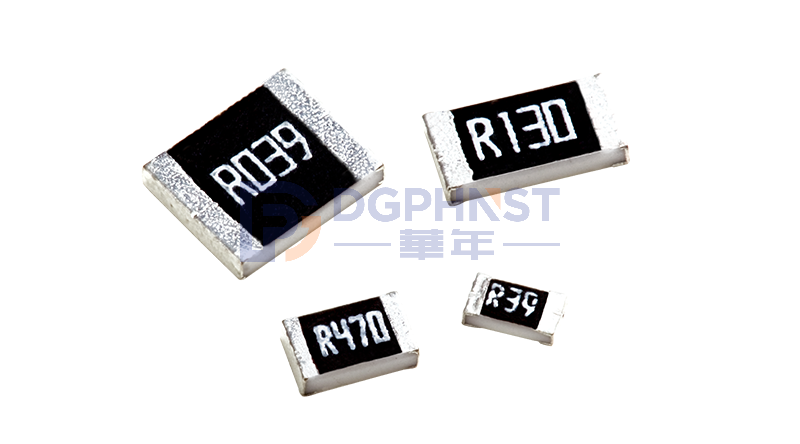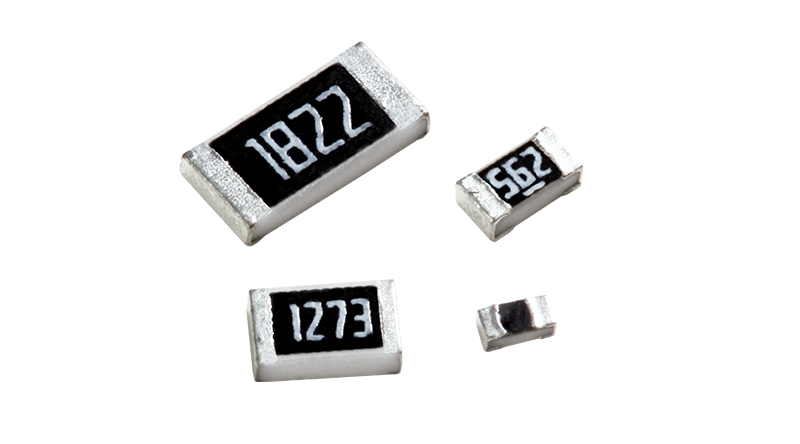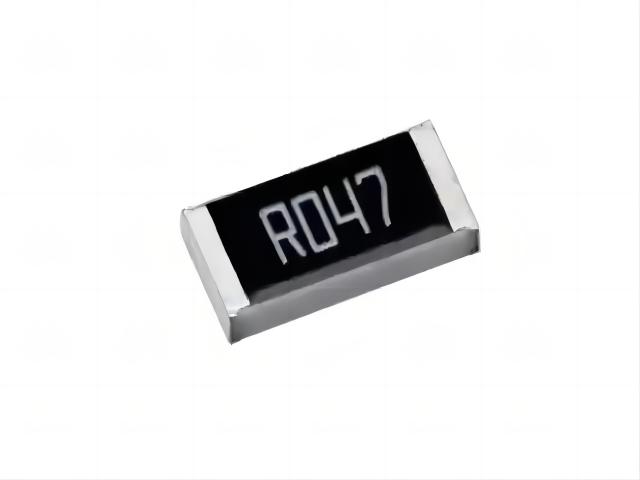Metal film resistors play a key role in many fields that require high performance of electronic components due to their advantages of high accuracy, low temperature coefficient, good stability, and low noise. Its main application areas include:
Precision measuring and testing instruments:
Core application: This is the "main battlefield" of metal film resistors. The voltage dividers, sampling resistors, gain setting resistors, reference resistors, etc. inside instruments such as multimeters (especially high-precision digital multimeters), oscilloscopes, signal generators, spectrum analyzers, bridges, and data acquisition systems are highly dependent on the accuracy of metal film resistors (usually ± 0.1% to ± 1%) and low-temperature drift (temperature coefficient is usually ± 25ppm/℃ to ± 100ppm/℃).
Reason: The accuracy of measurement results directly depends on the precision and stability of these key resistance values.
Communication equipment:
Core applications: Widely used in base stations, routers, switches, optical modules, RF equipment, etc. Widely used in analog signal processing circuits, filters, impedance matching networks, bias circuits, and low-noise amplifiers (LNAs).
Reason: High requirements for signal fidelity, noise level, and impedance matching accuracy. The low noise, good high-frequency characteristics (with small parasitic parameters), and stability of metal film resistors ensure the quality of signal transmission and system reliability.
Industrial Automation and Control Systems:
Core applications: PLC (Programmable Logic Controller), DCS (Distributed Control System), sensor signal conditioning circuits, servo drives, frequency converters, process control instruments, etc.
Reason: Industrial environments often face challenges such as temperature fluctuations, vibrations, and electromagnetic interference. The high stability, good long-term reliability, and accuracy of metal film resistors are crucial for ensuring the accuracy of control signals, stable system operation, and process control precision. The voltage division, amplification, current detection and other links in the signal chain all rely on it.
Medical electronic devices:
Core applications: Circuit boards in high-end medical imaging equipment (such as CT, MRI, ultrasound), life monitors (ECG, blood pressure, blood oxygen), in vitro diagnostic equipment, and precision treatment equipment.
Reason: Medical equipment has extremely high requirements for safety, reliability, and measurement accuracy. The low noise, high stability, and precise resistance of metal film resistors are essential for accurate acquisition, amplification, and processing of weak physiological signals, as well as precise control of therapeutic doses. Its long-term stability also reduces the frequency of equipment calibration.
Automotive Electronics (Specific Key Modules):
Core applications: mainly focused on key subsystems that require high precision and reliability, such as:
Engine Control Unit (ECU): The conditioning circuit for sensor signals (temperature, pressure, position).
Battery Management System (BMS): Precise sampling and balancing circuit for battery voltage and temperature.
Advanced Driver Assistance Systems (ADAS): Precise circuits within sensor modules such as radar and cameras.
Body Control Module (BCM): Some circuits that require precise voltage reference or signal processing.
Reason: The extreme automotive environment (wide temperature range, vibration, humidity, EMI) requires strict reliability and accuracy of components. Metal film resistors provide better performance than ordinary thick film resistors in areas that require precise signal processing, ensuring the accuracy and safety of critical systems. Although the cost is higher than thick film resistors, it is a necessary choice in critical areas.
Aerospace and Defense Electronics:
Core applications: flight control systems, navigation systems, radar systems, communication equipment, missile guidance systems, etc.
Reason: This is one of the fields with the highest requirements for component reliability, stability, accuracy, temperature characteristics, and resistance to harsh environments. Metal film resistors (especially military or aerospace grade) undergo strict screening and special processing to meet the long-term stable working requirements under harsh conditions such as extreme temperature, vacuum, radiation, and high impact vibration.
High end consumer electronics (specific functions):
Core applications: Hi Fi amplifiers, professional audio equipment, high-end digital cameras, precision power adapters, high-end smart home controllers, etc.
Reason: Among these products that have high demands for sound quality, image quality, control accuracy, or power quality, the low noise, high stability, and good linearity of metal film resistors can bring perceptible performance improvements. For example, in the feedback network or frequency divider network of an audio amplifier, its low noise and low distortion characteristics are crucial for sound quality.
In summary, the core application logic of metal film resistors lies in:
High precision is required: In measurement, control, and signal processing, highly accurate resistance values are required.
High stability is required: the resistance value needs to change minimally under temperature changes, time passage, and environmental stress.
Require low noise: Minimize the noise introduced in signal amplification, acquisition, and other processes.
Good high-frequency characteristics are required: small parasitic inductance and capacitance are required in applications such as communication and radio frequency.
High reliability is required: Long term stable operation is required in critical or harsh environments such as industrial, automotive, and military industries.
Therefore, it is mainly active in precision instruments, communications, industrial control, medical, automotive key modules, military aerospace, and high-end consumer electronics where there is a rigid demand for the above performance. In large quantities of ordinary consumer electronics products that are more cost sensitive and have relatively relaxed performance requirements, such as low-end power supplies and simple control boards, carbon film resistors or thick film resistors (chips) with lower costs are more widely used.



